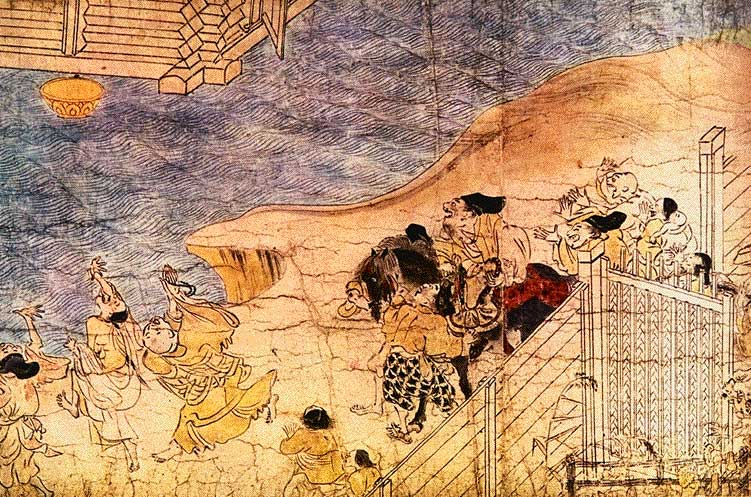Overview of Ancient China

Chinese civilization traditionally dates to the founding of the Xia dynasty by a ruler named Yu, about four thousand years ago. The Xia dynasty was replaced by the Shang dynasty in about 1800 B. C. The Shang dynasty ruled a intensely agricultural society which featured a centralized government. The Shang built large cities and their kings were laid to rest in elaborate tombs.
The Shang dynasty was overthrown by the Chou dynasty, which expanded the Chinese empire. As the longest-lived dynasty in Chinese history, the Western Chou dynasty extended from 1122 B. C. to 771 B. C. and the Eastern Chou from 770 B. C. to 256 B. C. It was during the Chou dynasty that Confucius lived. After the Chou dynasty came the brief Qin Dynasty, lasting from 221 B. C. to 206 B. C. With the fall of the Qin Dynasty, a short period of Civil War ensued. Eventually, the Qins were replaced by one of China's most important dynasties: the Han. The Han, which endured for 400 years, was a period of unprecedented political and cultural growth for China. Confucian thought became almost a state religion. It was also the time when the Great Silk Road between China and the Middle East was developed. After the breakdown of the Han dynasty, China again descended into a period of internal division which ended in 581 A. D. when Jang Jian created the Sui dynasty. Its major accomplishment was the building of the Grand Canal. The Sui dynasty ended when Jang Jian was killed in the aftermath of an unsuccessful war with Korea. It was replaced by the Tang Dynasty. The Tangs extended China's borders. This period represented one of the most glorious for cultural development in China. The Tang dynasty came to an end in 907. After a period of anarchy a new dynasty, the Song, arose. The Song Dynasty ruled for nearly 300 years. It never gained complete control over its northern border, and this would ultimately lead to its undoing, as the Mongols under Kublai Kahn would capture China in 1279. The Mongols set up their own dynasty, the Yuan, which lasted until 1368. It was replaced by the Ming Dynasty which ruled until 1644.
 >
>